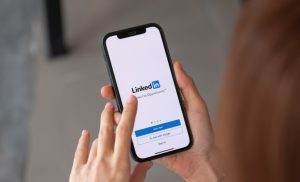Table of Contents
Often, if you’re running a small business, you simply don’t have the budget available that larger operations would have access to. This can result in making cutbacks and budgetary decisions that lead to your business suffering in the long run, but it doesn’t have to be this way.
Marketing, in particular, is an essential expense as a business owner, so you absolutely need to have a marketing strategy in place. Don’t despair, though; you can still do this without spending a huge amount of money. Here’s how to market your small business on a budget.
How to Market Your Small Business on a Budget?
1. Don’t be afraid to seek alternative funding
If your business is struggling to accrue funding, don’t be afraid to look for more sources, especially if you have faith in your business plan (which you should!). That could mean looking for investors who are willing to take a chance on you, or it could mean asking those close to you if they could help you out.

Personal loans can also be a good idea in this situation; even bad credit loans could be a good way of funding marketing for your business if you’re struggling with your credit rating. Don’t give up until every possible funding avenue has been exhausted!
2. Use social media
It’s free to operate a social media account in most cases, and a huge amount of your online marketing will be conducted entirely through social media. Talking to clients and customers, advertising your business, and running ad campaigns can all be done without spending a single penny; while platforms like Facebook and TikTok do offer paid advertising systems, you don’t have to avail yourself of them if you don’t want to. Signing up for business accounts on Facebook, Instagram, Twitter, and many other sites is completely free, so this can be a good way to keep marketing costs down.
3. Work with local businesses
Generally speaking, working alongside businesses that are local to you means you can keep your costs down. You can advertise yourself and market your business through local channels, which means you’ll bring in business that’s close to your base of operations.

This has the added benefit of allowing you to build a business network within your community; people will get to know your brand as one they can trust, which will stand you in good stead as your business expands. You’re getting a lot of benefits without paying too much at all when you work with local businesses.
4. Don’t waste money targeting the wrong demographic
If you’re not careful and clever with your marketing, you could spend a lot of money constructing marketing campaigns that target entirely the wrong demographic. Spending money with social media paid advertising features doesn’t guarantee a boost in your business; you still need to be savvy with who you’re targeting and why. Think carefully about what your business’s core demographic is and how you can best target them. This will ensure that you keep costs down by only paying for campaigns when you have a much higher level of confidence that they’ll succeed.
5. Use LinkedIn
Okay, so it’s become a bit of a meme in recent years, but LinkedIn is still an incredibly valuable resource for anyone who’s looking to do some business marketing. You can create and maintain connections with other businesses, post blogs and content detailing your business initiatives, and even headhunt employees using LinkedIn, and it’s all completely free.

There’s a good reason most businesses are on LinkedIn and using it regularly, and it’s not just because they’re trying to hedge their bets; it’s a legitimately useful resource that could help lower a lot of your marketing costs.
6. Optimise content for SEO
Whenever you create content for your business – whether that’s blog posts, YouTube videos, or social media statuses – you should always be optimising for SEO. This will help you to get closer to the top of Google search rankings, which will in turn help people find your content when they’re searching for relevant keywords. Be sure to include as many keywords related to your topic as you can, but don’t just flood your content with keywords irrespective of where they fall in the content; this is black hat SEO and can actually get you ranked lower by Google.
7. Keep your software as free as possible
There are actually a lot of ways that your business can keep costs down when it comes to software. By using free alternatives to common software solutions, you can prevent the need to pay for costly and unnecessary packages, thus potentially saving yourself a huge amount of money. Good free alternatives to business software include LibreOffice (a free option if you’re a Microsoft Office user), Slack for communication, and GIMP if you need to do any kind of image manipulation. These are powerful software suites, but they won’t cost you a penny to download and use.
8. Reach out to smaller influencers
When you’re considering influencer marketing, you don’t need to talk to the huge influencers with massive followings to make an impact. In fact, you’re better off targeting influencers with smaller follower counts for a number of reasons.

First, you’re simply more likely to be heard by an influencer who isn’t inundated with offers to collaborate with brands and businesses. Second, a smaller influencer is more likely to create a custom, well-crafted campaign for you, since they work on a more local scale. There are other reasons to collaborate with influencers, so make sure to keep smaller, more niche influencers in mind for any influencer marketing campaigns you run.


